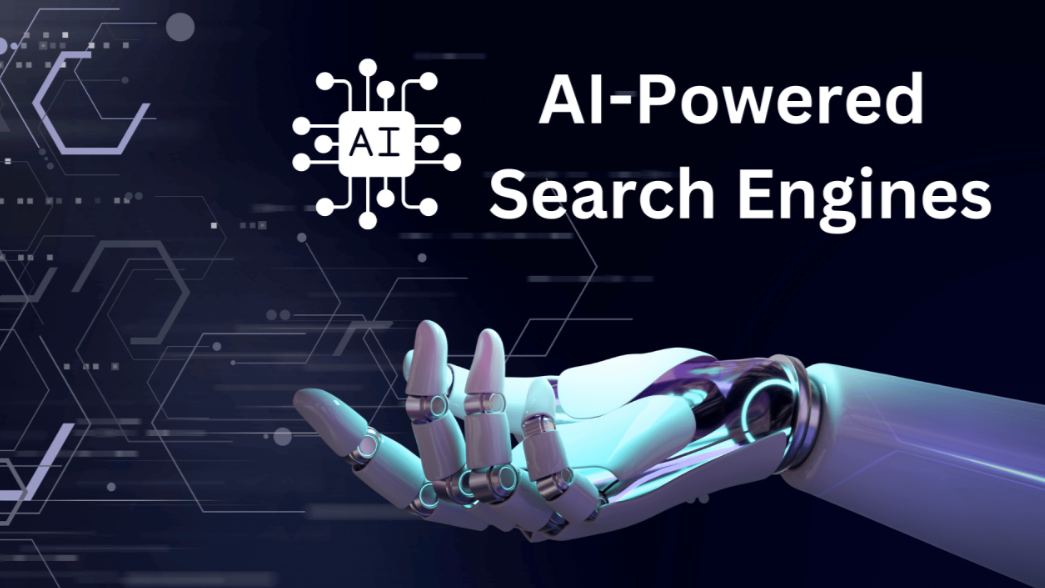With the rapid development of artificial intelligence (AI) technology, the working principles of search engines are continuously evolving. Traditional search engines are gradually unable to meet modern users' needs for accurate and efficient information retrieval, while AI search is becoming the next-generation information retrieval tool, providing an unprecedented search experience. Compared to traditional keyword-based search methods, AI search provides more precise answers and personalized recommendations by deeply analyzing user intent, semantic understanding, and context processing.

In this transformation of search engines, CIDIFY, with its leading AISEO services, helps businesses optimize their website content to meet the new demands of AI search engines, thereby increasing brand exposure and market competitiveness.
Differences Between Traditional Search and AI Search
Traditional Search: Keyword Matching
Traditional search engines (such as Google, Bing, etc.) mainly return relevant content based on keyword matching. After a user enters a query, the search engine returns search results based on factors such as keyword frequency, relevance in the webpage content, and external links. In this approach, users need to actively filter information and assess its accuracy.
Limitations: Traditional search results largely rely on keyword matching, which may lead to a large amount of irrelevant information and redundant content, requiring users to filter and assess it themselves.
AI Search: Semantic Understanding and Context Matching
Unlike traditional search, AI search engines (such as Deepseek, Baidu AI Search, etc.) use advanced technologies such as Natural Language Processing (NLP), semantic search, context understanding, and personalized recommendations to deeply analyze users' query intentions and provide more accurate and relevant answers.
How It Works: AI search engines understand the user's question and recall relevant information sources using large models, analyzing it and providing accurate answers. AI search not only processes a single query but understands context and provides continuous, relevant follow-up answers. For example, when a user asks who the author of "The Three-Body Problem" is, the AI search will automatically recognize and provide the answer "Liu Cixin." If the user continues to ask, "What are his other works?" the AI search will understand the user's intent and provide a list of related works.
Advantages: AI search can understand the context and automatically adjust search results. Users don't need to think about keywords; they can simply ask their question, and the AI search will automatically analyze and understand it to provide the most appropriate answer.
Technological Innovation and Advantages of AI Search
AI search is not just a tool for information retrieval; it also provides more accurate search results by leveraging semantic understanding, entity recognition, and context analysis. For example, AI search utilizes knowledge graph technology to build networks of relationships between entities, enabling cross-domain information recall and answers.
Personalized Recommendations: AI search provides personalized search results based on users' historical data, interests, and behaviors, reducing information redundancy.
Natural Language Processing: Users can directly ask questions in natural language, and the AI search engine will understand the question and return the most precise answer.
Contextual Association: AI search has the ability to understand context and provide related answers based on historical queries, solving the issue of lack of continuity in traditional search.
Challenges and Future Development of AI Search
Although AI search has significant advantages in terms of efficiency, accuracy, and personalization, it still faces some challenges:
Data Privacy Issues: AI search relies on a large amount of user data to optimize results, which may raise concerns about data privacy and security.
Content Reliability: The accuracy and reliability of AI search heavily depend on the quality and timeliness of the data sources. High-quality, trusted data sources and cross-validation mechanisms are critical.
Ethical Issues: The results of AI search may be influenced by algorithmic biases, and ensuring fairness and transparency is a challenge that needs to be addressed.
However, with the continuous advancement of technology, AI search will play an increasingly important role in various fields. It will evolve beyond just information retrieval and become a cross-domain intelligent assistant, offering more accurate and personalized services.

How to Enhance Performance in AI Search with AISEO
To adapt to the AI search trend, businesses need to perform AISEO optimization. CIDIFY helps businesses optimize website content with innovative AISEO services, ensuring high rankings and exposure in AI search engines. Our services include:
Structured Content Optimization: We help businesses structure their website content with Schema.org markup, JSON-LD, and other technologies, making it more understandable and indexable for AI search engines.
Semantic and Context Optimization: We optimize the semantic structure of page content, ensuring that AI search engines can accurately understand and match users' query intentions.
Entity Recognition and Optimization: We enhance entity recognition on web pages (e.g., brand, product, location) to improve content accuracy and relevance.
User Experience Enhancement: AISEO focuses not only on content optimization but also on website load speed, mobile adaptation, and page usability to improve user experience and search rankings.
Through CIDIFY's AISEO services, businesses can better adapt to AI search engine requirements and improve brand exposure and market competitiveness.
Conclusion
The shift from traditional search to AI search is not just a technological revolution but a comprehensive challenge for business digital marketing strategies. The emergence of AISEO provides businesses with smarter optimization methods, helping them occupy advantageous positions in AI search engines. With its strong technical expertise and innovative AISEO services, CIDIFY helps businesses achieve global brand positioning and seize the digital marketing opportunities of the AI era.
If your business wants to stand out in AI search engines, improve rankings and traffic, CIDIFY is your trusted partner!



